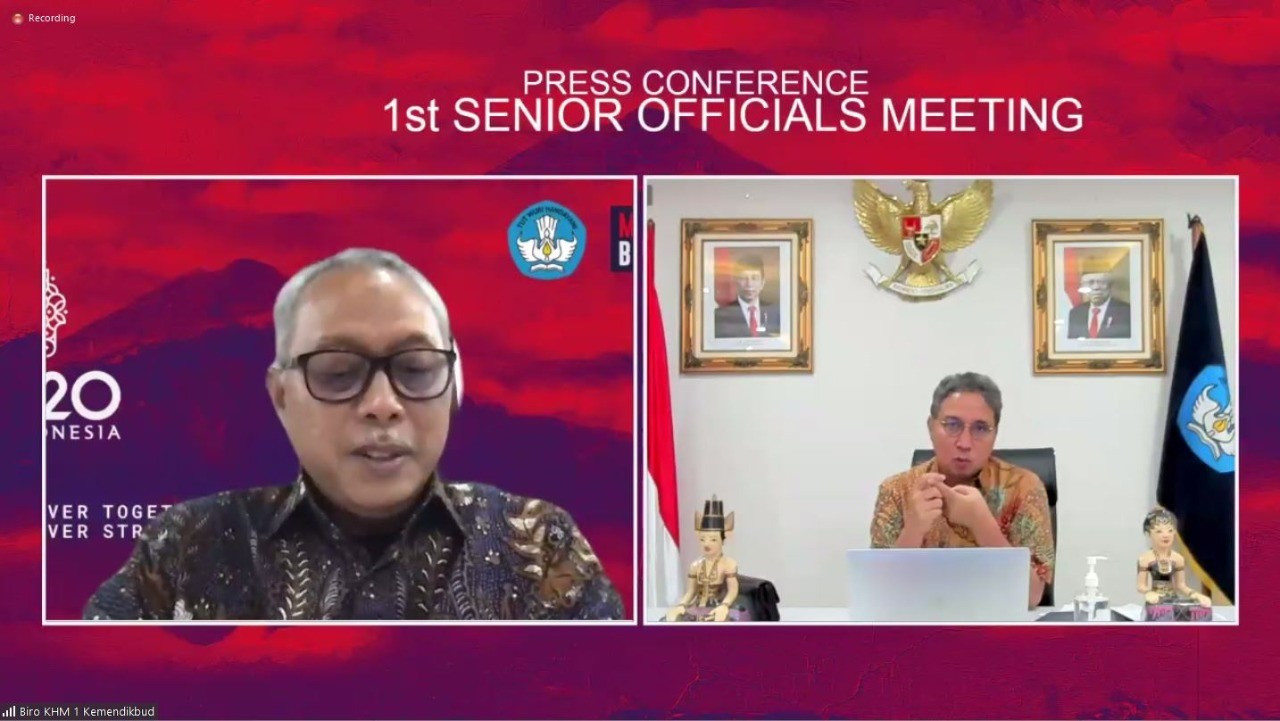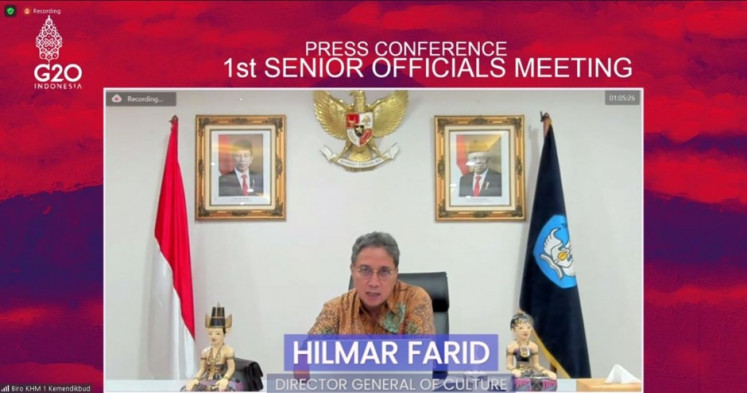Popular Reads
Top Results
Can't find what you're looking for?
View all search resultsPopular Reads
Top Results
Can't find what you're looking for?
View all search resultsEducation for better recovery through a more sustainable lifestyle
Change text size
Gift Premium Articles
to Anyone
T
he Education, Culture, Research and Technology Ministry (Kemendikbudristek) has announced that it is chairing the G20 Ministerial Meeting on Culture on Sept. 12-13 in Magelang, Central Java.
The announcement marks the start of a series of G20 activities in the field of culture that culminates in the September meeting, which will be attended by delegates from G20 member states, specially invited countries and international organizations.
In gearing up for that event, the education ministry convened the first G20 Culture Senior Officials Meeting (SOM) on Friday. The theme for 2022 is “Culture for Sustainable Living” and focuses on recovering culture for the post-pandemic era.
“The pandemic has exposed the latent vulnerabilities in our modern lifestyle. We are no longer talking about poverty, inequality, injustice, but about human survival as a species. To recover together and recover stronger, we need a new, more sustainable lifestyle," said the ministry’s Director General of Culture, Hilmar Farid.
Hilmar also highlighted two key points of discussion: to build a global consensus for the “new normal” and to initiate a global recovery agenda by establishing a network of collective action in the culture sector. He added that the ministerial meeting in September would focus on the role of culture in promoting sustainable living and lifestyles.
"The meeting will explore the possibility of a new normal, namely the transition to a development policy that is oriented more toward social-ecological justice, based on the diversity of cultural resources," he said.
Hilmar said the meeting would discuss five main issues. The first was the role of culture as a driver of sustainable living, with the second issue on the economic, environmental and social impacts of culture-based policies. The third was comanagement of cultural resources that promoted sustainable lifestyles at the local level.
The fourth was equitable access to cultural economic opportunities and finally, the fifth was the mobilization of international resources in a funding mechanism to mainstream sustainable recovery in arts and culture.
Indonesia has a cultural endowment fund, an initiative it hopes to take to the international stage as an example for others.
“The various knowledge, institutions, cultural expressions and practices that we have inherited have passed the test of time to carry over into modern times. If these various cultural resources are consolidated, we will have the means to create a more sustainable lifestyle,” Hilmar said, noting the importance of continuity in the new normal.
“This is the cultural path offered by Indonesia’s G20 Presidency,” he concluded.











